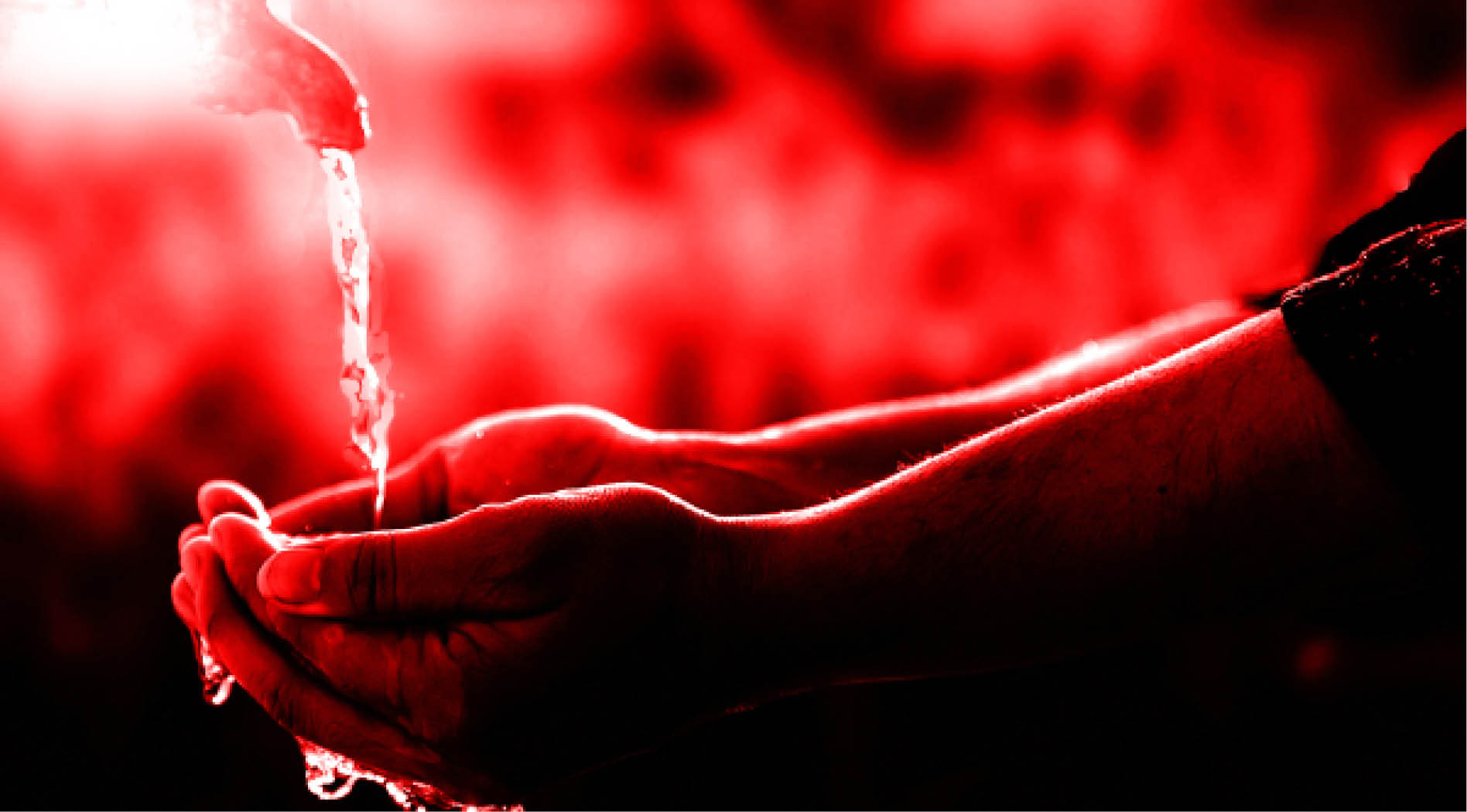Muslims perform ablution every day; a ritual where one is required to wash the face, arms, and feet – and also pass wet hands over your hair from the forehead to the back of the head. It is necessary to have a valid ablution before the compulsory five daily prayers. This can be invalidated by passing wind. But beyond that, many Muslims prefer to stay in the state of ablution for the entire day and before going to bed.
We know the spiritual reasons why we perform ablution. But are there other reasons too? The following may be two scientific benefits of washing ourselves before prayers. Allah knows best.
“The most dominant species in the world are bacteria. There are four quadrillion quadrillion bacteria living on earth. That is 500 billion billion times the number of humans.” (Netflix’s TV show “Brainchild” in its episode on germs.)
Some of these germs are bad for us. This is how:
The average handshake lasts three seconds; during which 124 million microbes literally exchange hands. Some germs are good but some bad germs from our hands can get into our stomach and get us sick.
(This is to say nothing of some real messy things we do with our hands.)
Yet you find that Muslims are the most frequent handshakers because Islam encourages it. You would be forgiven if you shake the hand of your brother. It says.
Does it mean Muslims will get ill more? Not necessarily because Islamic practices also ensure that we enact one of the best protection against germs: Handwashing.
For instance, Global Hygiene Council recommends that we wash hands six times a day.
And the World Health Organisation says: “Hand hygiene is… the most important measure to avoid the transmission of harmful germs.”
And when it comes to hand washing, Muslims are also the most frequent handwashers. E.g. during ablution for the five daily prayers and after using the bathroom.
Further, Muslims are also instructed to wash hands not just before meals, but also after a meal as this Hadith shows:
“The Messenger of Allah (ﷺ) said: ‘Whoever would like Allah to increase the goodness of his house, should perform ablution (wash hands) when his breakfast is brought to him and when it is taken away.’” (Sunan Ibn Majah, Chapter on Food). If you eat three times a day, that’s six handwashings already – thereby satisfying the Global Hygiene Council recommendation.
Although other reasons abound, this is a relatable real-world function of regular ablution.
The second reason may be to lighten and unburden our conscience. This happens unconsciously to us when we are not aware of it. In his book, ”You Are Not So Smart,”
David McRaney cited a study by researchers from two North American universities that gives an indication of how deeply impactful ablution can be:
“A great example of how potent a force your unconscious can be was detailed by researchers Chen-Bo Zhong at the University of Toronto and Katie Liljenquist at Northwestern in a 2006 paper published in the journal Science. They conducted a study in which people were asked to remember a terrible sin from their past, something they had done which was unethical. The researchers asked them to describe how the memory made them feel. They then offered half of the participants the opportunity to wash their hands. At the end of the study, they asked subjects if they would be willing to take part in later research for no pay as a favor to a desperate graduate student. Those who did not wash their hands agreed to help 74 percent of the time, but those who did wash agreed only 41 percent of the time. According to the researchers, one group had unconsciously washed away their guilt and felt less of a need to pay penance.
The subjects didn’t truly wash away their emotions, nor did they consciously feel as though they had. Cleansing has meaning beyond just avoiding germs.”
Sometimes we feel so overwhelmed by emotions and our misdeeds to the extent that we feel like hypocrites when we turn to God to pray. But if we can regularly wash away such a burden, then we are more likely to have the headspace to live.
The study cited above may lead one to ask the question of whether handwashing can prevent one from helping others – as in the case of helping the graduate student. But if we go with the interpretation of the researchers, those who volunteered to participate in the future study to help the graduate student did it out of guilt and to wash themselves of the sin they were made to recall.
There may be many reasons why Allah wants us to wash ourselves regularly; chief among them is spiritual purification, but the above two are tangible explanations that science has discovered about our daily ritual. Seen from this angle, we are then reminded that we do not only have spiritual advantages but also worldly benefits of this practice – and whoever does it, Muslims or non – Muslim will take the same benefits.

 Join Daily Trust WhatsApp Community For Quick Access To News and Happenings Around You.
Join Daily Trust WhatsApp Community For Quick Access To News and Happenings Around You.


